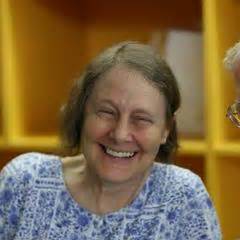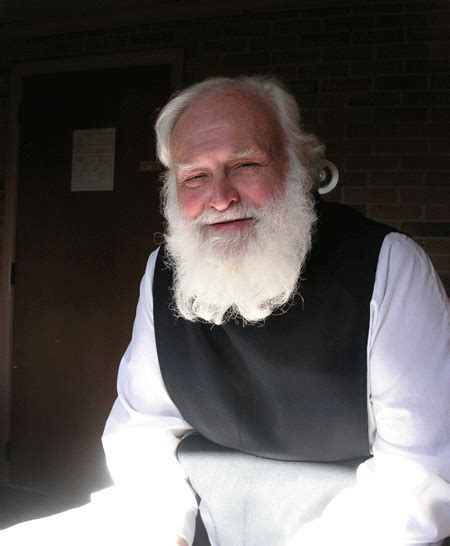A Quote by Thomas Merton
After all, what is your personal identity? It is what you really are, your real self. None of us is what he thinks he is, or what other people think he is, still less what his passport says he is. And it is fortunate for most of us that we are mistaken. We do not generally know what is good for us. That is because, in St. Bernard's language, our true personality has been concealed under the 'disguise' of a false self, the ego, whom we tend to worship in place of God.
Quote Topics
After
Because
Been
Bernard
Concealed
Disguise
Ego
False
Fortunate
Generally
God
Good
His
Identity
Know
Language
Less
Mistaken
Most
None
Other
Our
Passport
People
Personal
Personal Identity
Personality
Place
Real
Real Self
Really
Says
Self
Still
Tend
Think
Thinks
True
True Person
Us
Whom
Worship
Your
Related Quotes
The truth is that we are a part of God. God could not have created anything except out of his own consciousness. We're all his dream, and our duty in life that God has assigned to us, that the universe has placed squarely in our laps, is to find out who we really are. "Gnothi seauton," as the Greeks used to say. "Know thyself." But to know thyself, if you trace it back, to the deeper and deeper levels, you discover that that self is not your body or your ego or your personality or your country or anything, that's just a sack of self-definitions that you carry around with you
It isn't possible to kill part of your “self” unless you kill yourself first. If you ruin your conscious personality, the so-called ego-personality, you deprive the self of its real goal, namely to become real itself. The goal of life is the realization of the self. If you kill yourself you abolish that will of the self to become real, but it may arrest your personal development inasmuch it is not explained. You ought to realise that suicide is murder, since after suicide there remains a corpse exactly as with any ordinary murder. Only it is yourself that has been killed.
There are two gods. The god our teachers teach us about, and the God who teaches us. The god about whom people usually talk, and the God who talks to us. The god we learn to fear, and the God who speaks to us of mercy. The god who is somewhere up on high, and the God who is here in our daily lives. The god who demands punishment, and the God who forgives us our trespasses. The god who threatens us with the torments of Hell, and the God who shows us the true path.
There are two gods. A god who casts us off because of our sins, and a God who calls to us with His love.
Worship ought not to be construed in a utilitarian way. Its purpose is not to gain numbers nor for our church to be seen as successful. Rather, the entire reason for our worship is that God deserves it. (Worship) immerses us in the regal splendor of the King of the cosmos…provides opportunities for us to enjoy God’s presence in corporate ways that takes us out of time and into the eternal purposes of God’s kingdom. As a result, we shall be changed—but not because of anything we do. God, on whom we are centered and to whom we submit, will transform us by his Revelation of himself.
Happiness is your real nature. You identify with yourself with the body and mind, feel it's limitations, and suffer. Realize your true self in order to open the store of happiness. That true self is the reality, the Supreme Truth, which is the self of all the world you now see, the self of all the selves, the One real, the Supreme, the Eternal self - as distinct from the ego or the bodily idea for the self.
I think that the only choice that we have in life is whether we align ourselves with God or not. I think everything else is all taken care of for us. You know? If you choose to align with your source, with your spirit, then your life will go in a certain direction. If you choose to align yourself with your ego, and your false self, and the belief that who you are is what you accomplish and what other people think of you and what you accumulate, if you just go that route - the outer route, if you will, the outer path - your life will go in a different direction.
None of us like the concept of law because none of us like the restraints it puts on us. But when we understand that God has given us his law to aid us in guarding our souls, we see that the law is for our fulfillment, not for our limitation. The law reminds us that some things, some experiences, some relationships are sacred. When everything has been profaned, it is not just my freedom that has been lost- the loss is everyone's. God gave us the law to remind us of the sacredness of life, and our created legal systems only serve to remind us of the profane judgments we make.
Jesus is the mediator of justice; Mary obtains for us grace; for, as St. Bernard, St. Bonaventure, St. Bernardine of Siena, St. Germanus, St. Antoninus, and others say, it is the will of God to dispense through the hands of Mary whatever graces he is pleased to bestow upon us. With God, the prayers of the saints are the prayers of His friends, but the prayers of Mary are the prayers of His mother.
SELF-DISCIPLINE, more than any other personal quality I can think of, is the one thing that separates successful people from the unsuccessful. Think of all it encompasses: honoring commitments, promises and deadlines, keeping your life on schedule, being willing to go the extra mile... Self-discipline is essential to success. The alternative is a life ruled by emotions, and none of us can afford that if we're going to fulfill our purpose and realize our potential.
The gospel shows us that our spiritual problem lies not only in failing to obey God, but also in relying on our obedience to make us fully acceptable to God, ourselves and others. Every kind of character flaw comes from this natural impulse to be our own saviour through our own performance and achievement. On the one hand, proud and disdainful personalities come from basing your identity on your performance and thinking you are succeeding. But on the other hand, discouraged and self loathing personalities also come from basing your identity on your performance and thinking you are failing.
O most sacred, most loving heart of Jesus, thou art concealed in the Holy Eucharist, and thou beatest for us still.... Thou art the heart of the Most High made man.... Thy Sacred Heart is the instrument and organ of Thy love. It did beat for us. It yearned for us. It ached for our salvation. It was on fire through zeal, that the glory of God might be manifested in and by us.... In worshipping thee I worship my incarnate God, my Emmanuel
A false identity is any lie that contradicts our God-given identities through Scripture. These false identities can be created by ourselves because of sin in our lives, choices made, or wrong turns taken and the regret, guilt, and shame that follows. Other false identities are handed to us by outside sources, maybe a damaging word spoken to us by someone or a childhood of abuse. However, not all false identities are negative on the surface, such as successful, attractive, wealthy, athletic, or talented. But even those identities can become false when we place too much of our weight on them.


































